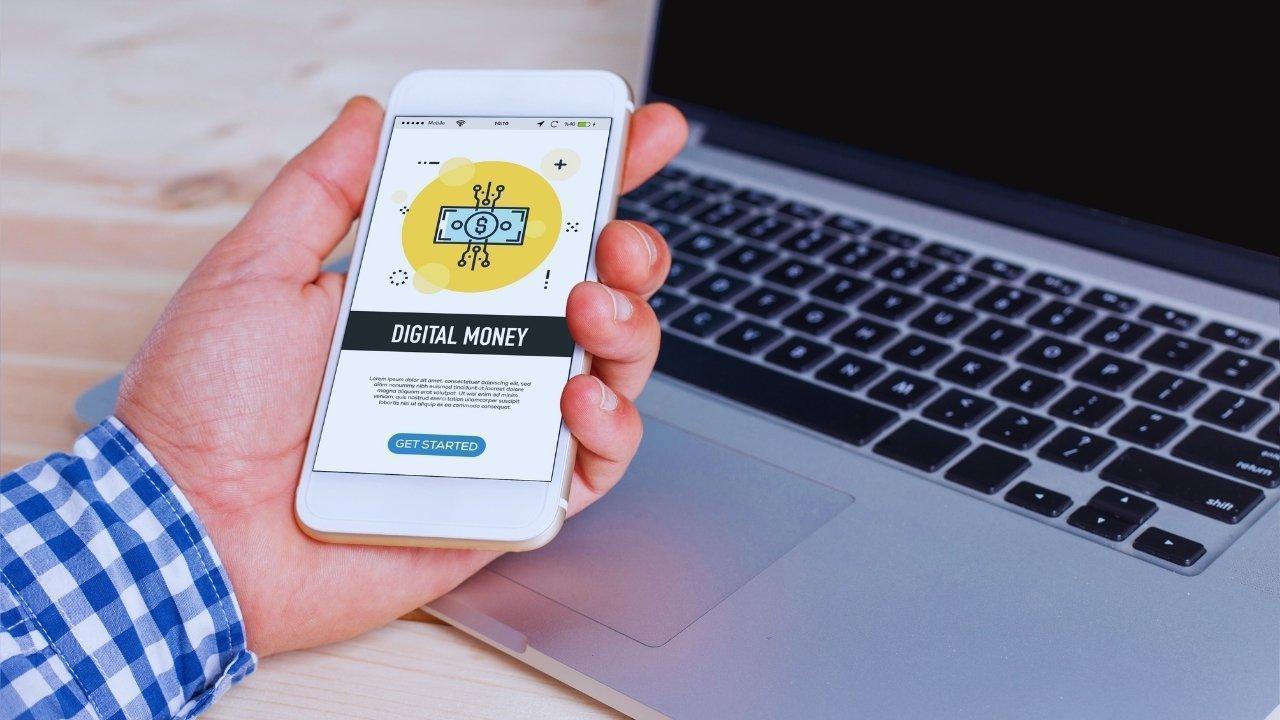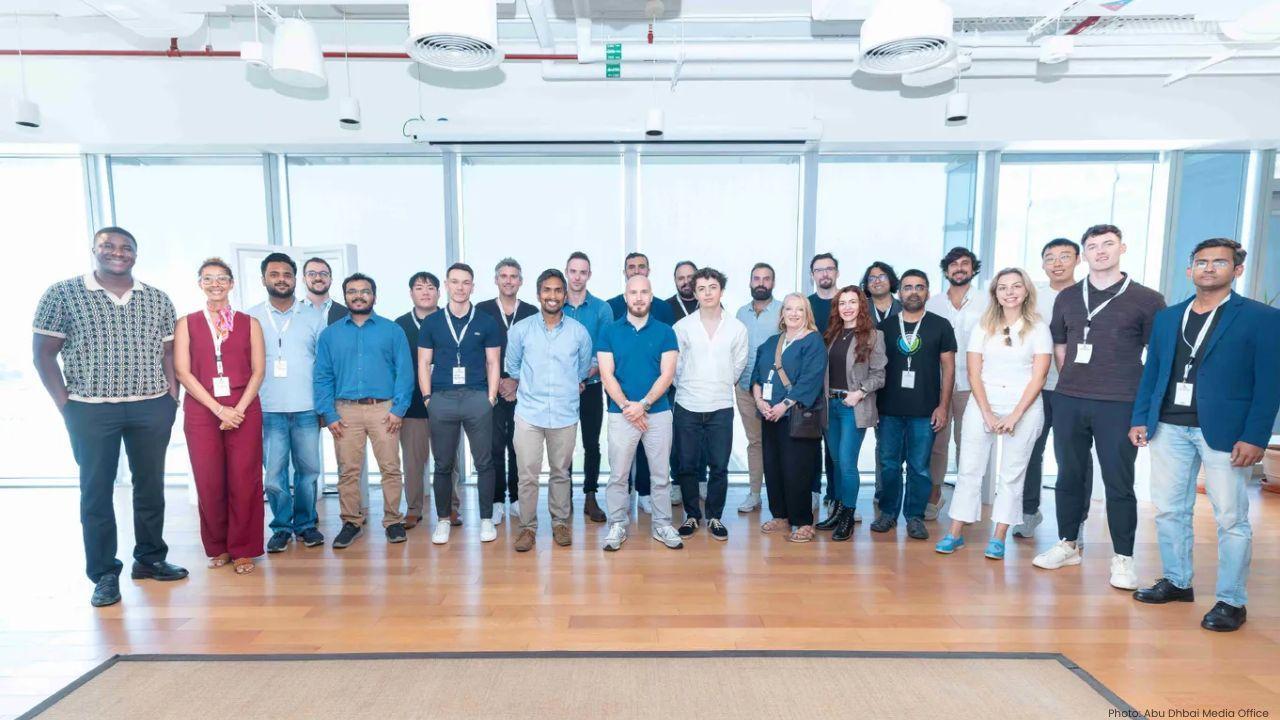
Post by : Anish
There was a time when money meant crisp banknotes, jangling coins, and physical wallets stuffed with receipts. Fast forward to today, and payments have taken a radical turn. A growing number of people now pay with their smartphones, transfer money through digital wallets, and even experiment with cryptocurrencies like Bitcoin and Ethereum. What once seemed futuristic is becoming everyday reality.
Digital money is not just about convenience—it is transforming how societies function. Governments are exploring official digital currencies, businesses are shifting to cashless models, and younger generations see crypto not as a novelty but as a natural part of financial life. The change is so profound that it is reshaping banking, commerce, and even personal finance habits.
Digital wallets such as Apple Pay, Google Pay, and PayPal have become everyday companions. They store card details securely, enable contactless payments, and often provide additional services like loyalty points or rewards. For many people, especially in urban centers, wallets have become redundant as everything is now stored on their phones.
The pandemic accelerated this trend, with contactless payments becoming the norm for safety reasons. Today, it’s rare to see younger consumers carry much cash at all.
When Bitcoin first appeared in 2009, it was dismissed as an experimental project. Today, cryptocurrencies represent a multi-trillion-dollar market. While volatility continues to define the sector, crypto has moved far beyond niche investors. Retailers, travel agencies, and even charities are beginning to accept digital coins as payment.
Cryptocurrencies offer the promise of decentralized finance (DeFi), where individuals transact directly without banks or middlemen. For people in countries with unstable currencies, crypto provides a lifeline—an alternative to inflation and capital controls.
Governments are not staying on the sidelines. Dozens of countries are developing Central Bank Digital Currencies (CBDCs), which are official e-versions of their national currencies. Unlike cryptocurrencies, CBDCs are regulated and backed by governments, offering the benefits of digital transactions with the trust of traditional money.
China’s digital yuan, for example, is already in advanced stages of rollout, while the European Union and the United States are exploring their own versions. If successful, CBDCs could redefine global payments and international trade.
The shift to e-currency and crypto brings practical advantages:
Convenience: No more carrying cash or worrying about exact change.
Speed: Transactions happen instantly, even across borders.
Cost Savings: Lower transaction fees compared to traditional banking.
Transparency: Blockchain-based payments can be tracked, reducing fraud.
Access: People without traditional bank accounts can still participate in digital finance.
For travelers, digital money eliminates the hassle of currency exchange, while for businesses, it simplifies international transactions.
Despite its promise, digital money is not without risks. Cybersecurity threats remain a pressing concern, as hackers target wallets and exchanges. The volatility of cryptocurrencies also deters many from adopting them for everyday use.
Moreover, the digital divide poses challenges. Not everyone has smartphones or internet access, particularly in rural or developing areas. A fully cashless economy risks leaving these populations behind.
Finally, privacy is a growing debate. While crypto advocates praise anonymity, government-backed e-currencies may allow unprecedented monitoring of personal transactions.
The digital money revolution is influencing how economies operate. For businesses, accepting digital payments opens doors to global customers. For governments, it provides better tools for tax collection and financial oversight. For consumers, it offers convenience and speed that physical money cannot match.
In emerging markets, mobile-based money transfers are already lifting millions out of poverty by allowing them to send and receive funds easily. Countries like Kenya, with platforms such as M-Pesa, have shown how digital money can empower communities with little access to traditional banking.
Younger generations—Millennials and Gen Z—are driving this change. They are more comfortable with apps, QR codes, and digital wallets than with cash. Many of them even prefer investing in crypto assets over gold or real estate. For them, money is not something you carry in a wallet; it is something that flows seamlessly across devices and platforms.
This cultural shift ensures that the digital money trend is not temporary—it is a fundamental change in financial behavior.
The next decade is likely to bring even more integration of digital and crypto payments. Wearables may replace smartphones for transactions, biometric authentication could eliminate passwords, and cross-border payments may become instant and almost cost-free.
For cryptocurrencies, regulation will play a key role. If governments strike the right balance between innovation and oversight, digital coins could become as common as debit cards. Meanwhile, CBDCs are likely to coexist with traditional currencies, offering a hybrid model that blends security with innovation.
Digital money—whether through wallets, crypto, or CBDCs—is no longer an experiment. It is an evolution of how humans exchange value. While challenges like security, regulation, and inclusivity remain, the benefits are undeniable.
From the perspective of individuals, businesses, and governments, e-currency and crypto are making money simpler, faster, and more versatile than ever. Cash may not disappear completely, but its role in everyday life is shrinking fast. The future of money, it seems, is already in our pockets—and sometimes, on the blockchain.
This article is intended for informational and editorial purposes only. It discusses general trends in digital money, cryptocurrencies, and e-currency but does not offer financial or investment advice. Readers should seek professional guidance before making financial decisions.

Eid e Milad 2025 Honoring the Birth and Teachings of Prophet Muhammad
Discover Eid e Milad 2025 celebrating Prophet Muhammad s birth with prayers charity peace and te

Baaghi 4 Tiger Shroff Returns with Thrilling Action and High Octane Drama
Explore Baaghi 4 Tiger Shroff s thrilling action stunning stunts gripping story and why this Bol

Voices of UAE: Bouchra Izaabel-Transforming Fertility Care, One Heart and One Story at a Time
Transforming Fertility Care, One Heart and One Story at a Time

Nvidia Faces Uncertainty in China Amid US-China Tech Tensions
Nvidia navigates US-China tech tensions as China remains key market. Demand for advanced chips rises

Wednesday Season 3 Release Date Plot Cast and What Fans Can Expect
Discover Wednesday Season 3 release date cast plot twists and what fans can expect from the thri

Hub71 Welcomes 26 AI Startups in Largest Cohort Yet
Hub71 launches its 17th cohort with 26 AI startups from 12 countries, raising AED 818M, boosting Abu

Deepika Padukone Joins LVMH Jury as First Indian Member
Deepika Padukone makes history as the first Indian juror at the 2025 LVMH Prize in Paris, joining fa

Voices of UAE: Bouchra Izaabel-Transforming Fertility Care, One Heart and One Story at a Time
Transforming Fertility Care, One Heart and One Story at a Time

Pakistan Defeat UAE by 31 Runs in T20I Tri-Series Clash
Pakistan beat UAE by 31 runs in Sharjah T20I Tri-Series. Saim Ayub hit 69, Hasan Nawaz 56, while Has

Vice President’s Jiu-Jitsu Cup Ends with UAE Clubs Triumph
Sharjah Al Ain Al Jazira and Baniyas clubs shine as champions in the Vice President’s Jiu-Jitsu Cup

Liverpool beat Arsenal City fall to Brighton in EPL drama
Liverpool edge Arsenal with Szoboszlai’s stunning free-kick, while Manchester City suffer second str

Tawfiq wins UAE President’s Cup Arabian Horse Race in Russia
Tawfiq claimed victory at the UAE President’s Cup in Kazan, Russia, thrilling 20,000 fans with a dra

GCC Chief Urges Stronger Push on Global Free Trade Talks
GCC Secretary-General Jasem Albudaiwi pressed negotiators to intensify efforts on free trade pacts b

UAE and India Strengthen Trade Ties with Mumbai Business Talks
UAE Minister of Foreign Trade Dr. Thani Al Zeyoudi met Indian leaders in Mumbai to expand CEPA benef

UAE announces September fuel prices for petrol and diesel
The UAE Fuel Price Committee set September 2024 rates: Super 98 at AED 2.90, Special 95 and Diesel a